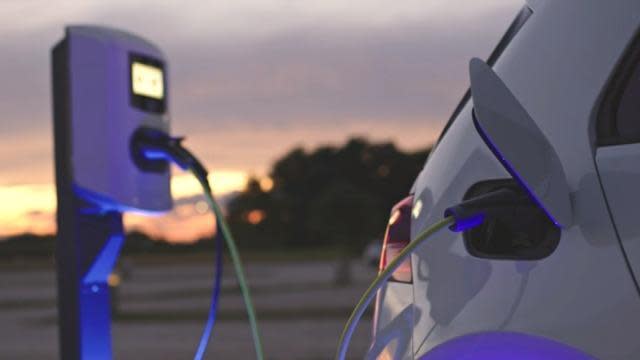Electric vehicles could soon cost less than gas-powered vehicles

If ever there was a time to want to be driving an electric car, it may have been last week — after the Colonial Pipeline cyberattack forced the company to take some of its systems offline. Fuel shortages resulting from the attack caused panic in parts of the country, with residents lining up at the pump, causing gas prices to spike.
Long lines, high gas prices and short tempers are frustrations that electric vehicle owners like Kathleen Biggins are glad they don’t have to deal with.
“My son noted that ‘Mom, we have your car. We don’t need to be so worried,'” she told CBS News meteorologist and climate specialist Jeff Berardelli.
Biggins said she feels secure as she watched the gas shortage unfold across the country and watched the lines at gas stations get longer.
“I feel much more secure, that I have control, right, in my own home of powering up my car and that I am not at the vagaries of the oil and gas market,” she said.
For the 99% who are not driving electric vehicles, the spike in fuel demand pushed prices up across the country. But with the average sticker price on an electric car $19,000 higher than a gas-powered vehicle, many do not see it as a viable option.
Biggins, however, said the investment pays off long-term.
“In general, it’s much cheaper to fuel your car to electricity than it is to gas,” she said.
According to a Consumer Reports analysis of EVs, fuel savings alone can be more than $4,700 over the first seven years of ownership. With only 20 moving parts in an electric car, maintenance savings over the lifetime of the vehicle can range from $6,000 to $10,000.
Dr. Jeffrey Sachs, an economist and sustainability expert, said some direct tax rebates or other subsidies could help with upfront costs.
He said the savings will really mount as the industry scales up, and he expects the total cost of EVs to fall below gas-powered vehicles in just two to three years.
“This cost decline that’s been underway is going to continue and the fact of the matter is we’re not going to have that much choice because all of the manufacturing companies are now looking at Tesla and say, ‘Hey, we’re going that way, too,” he said.
The necessary shift was further highlighted this past week from a national security perspective. The kind of hack that happened to the Colonial Pipeline could also happen to an electrical grid.
“This isn’t a physical hack of a pipeline; it’s a digital hack. And so there really are concerns, no matter what kind of vehicles and what kind of energy system,” Sachs said. “But what I do think is true is that the national security of a renewable energy system, which is home-based, renewable energy, not dependent on the vagaries of international markets, Middle East wars, Middle East boycotts, and geopolitical crises — that’s going to be a lot better in the future.”
There’s a policy promise on the horizon. The Biden administration pledged $15 billion to build 500,000 charging stations nationwide, and the number of EV models available in the U.S. is expected to triple in the next three years.
“Even if the costs were a disadvantage, we’d have to do it because of climate risks. Thank goodness it’s going to be a great bargain anyway; I think it’s pretty much a no-brainer.”
In just the last 10 years, battery prices have dropped by as much as 90%. They’re dropping so fast that analysts say the purchase price of EVs will fall below that of gas-powered vehicles in the next two to four years.



